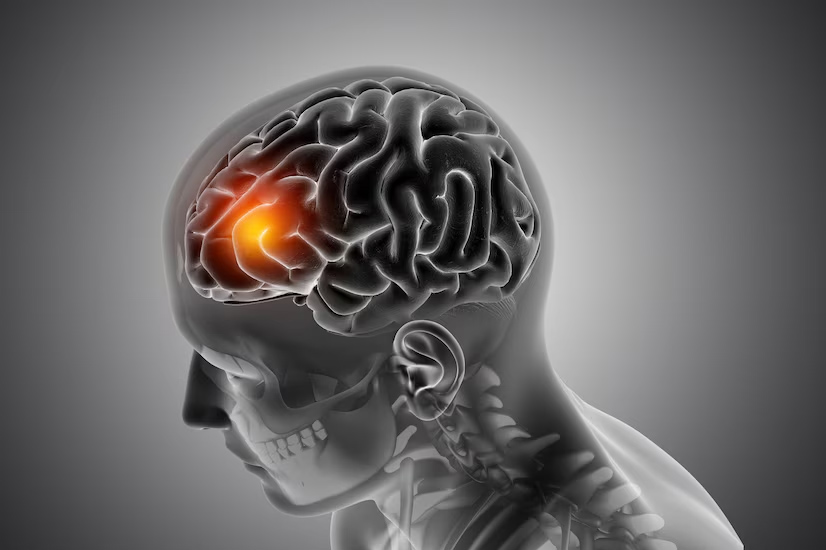
Imagine waking up one day and being unable to recall cherished moments from your past or struggling to retain new information. This scenario often plays out dramatically in TV shows or movies, where you’re most likely to find the protagonist waking up after an accident asking, “Who am I, where am I?” This condition is called amnesia and while TV or movies might portray it dramatically, the reality of amnesia is more nuanced yet equally impactful. Amnesia is a serious medical condition that affects the brain's ability to store or retrieve memories, often leaving individuals and their loved ones grappling with uncertainty.
Table of Content:-
To understand Amnesia, OnlyMyHealth interacted with Priyanka Kapoor, Psychotherapist, Psychologist, Couple and Family Counselor.
Kapoor explained, "Amnesia is not the same as being a little forgetful in daily life. It refers to a widespread loss of long-term memory caused by disease, trauma, or brain injury."
What is Amnesia?

Amnesia, also called amnestic syndrome, involves the loss of memories, including facts, information, and experiences. However, contrary to popular portrayal, amnesia rarely results in someone forgetting their own identity. According to Kapoor, "Those who suffer from amnesia typically know who they are. Instead, they may struggle to create new memories and learn new information."
The condition occurs when parts of the brain critical for memory processing, such as the hippocampus and thalamus, are damaged. Kapoor adds, "Damage to these areas can cause amnesia to be permanent, unlike transient global amnesia, which involves temporary memory loss."
Also read: Know The Difference Between Alzheimer’s and Amnesia
Causes of Amnesia

Amnesia results from trauma, disease, or injuries affecting the brain. Memory functions involve several interconnected brain regions, and damage to any of these can disrupt memory retention. Some common causes include:
- Brain injuries: Trauma to the hippocampus or thalamus, which are part of the limbic system governing emotions and memories.
- Medical conditions: Strokes, seizures, heart attacks, and oxygen deprivation (cerebral hypoxia).
- Substance abuse: Alcohol intoxication can cause temporary memory loss.
- Neurodegenerative diseases: Alzheimer's disease is a major contributor to progressive memory impairment.
- Brain tumors or aneurysms: Cancerous or noncancerous growths can interfere with memory processing.
Kapoor elaborates, "Memory can be affected by any illness or trauma to the brain. Stroke, head injuries, and even certain medications are known to cause amnesia."
Symptoms of Amnesia

The symptoms of amnesia vary but often include:
- Difficulty recalling past events.
- Trouble forming new memories.
- Disorientation and confusion in severe cases.
- The ability to retain learned skills or knowledge in procedural memory (e.g., riding a bike) remains intact.
Also read: Lifestyle Changes Could Prevent Nearly Half Of Dementia Cases: Study
Treatment for Amnesia
Amnesia is not always permanent and may resolve on its own in some cases. However, addressing the underlying cause is crucial. Kapoor states, "Although there isn't a specific treatment for amnesia, strategies can help improve memory and support coping mechanisms."

Common Treatment Approaches:
Cognitive Behavioral Therapy (CBT): CBT helps patients manage emotional challenges and work on memory retrieval.
Hypnosis: Some individuals regain lost memories through relaxation and focused therapy.
Mindfulness exercises: Practices like meditation can calm the mind, facilitating memory recovery.
Family support: Kapoor highlights the importance of emotional support, saying, "It can help to play familiar music, show them old photographs, or introduce scents associated with happy memories."
In cases of amnesia caused by physical trauma, surgical intervention may be required. For example, blood clots or tumors affecting the brain may need to be removed. Kapoor emphasizes, "While no medications can restore memories, treating the root cause can help prevent further memory loss."
Living with Amnesia
For individuals and families, living with amnesia can be challenging. Supportive strategies, including structured routines and memory aids like journals or electronic reminders, can significantly improve quality of life. Seeking professional guidance is also critical for managing the emotional toll of this condition.
As Kapoor concludes, "Amnesia is a complex condition, but with the right support, individuals can find ways to cope and adapt to their circumstances."
Also watch this video
Read Next
Frequent Urination And Weak Stream? Here's What It Could Mean If You Have Trabeculated Bladder
How we keep this article up to date:
We work with experts and keep a close eye on the latest in health and wellness. Whenever there is a new research or helpful information, we update our articles with accurate and useful advice.
Current Version